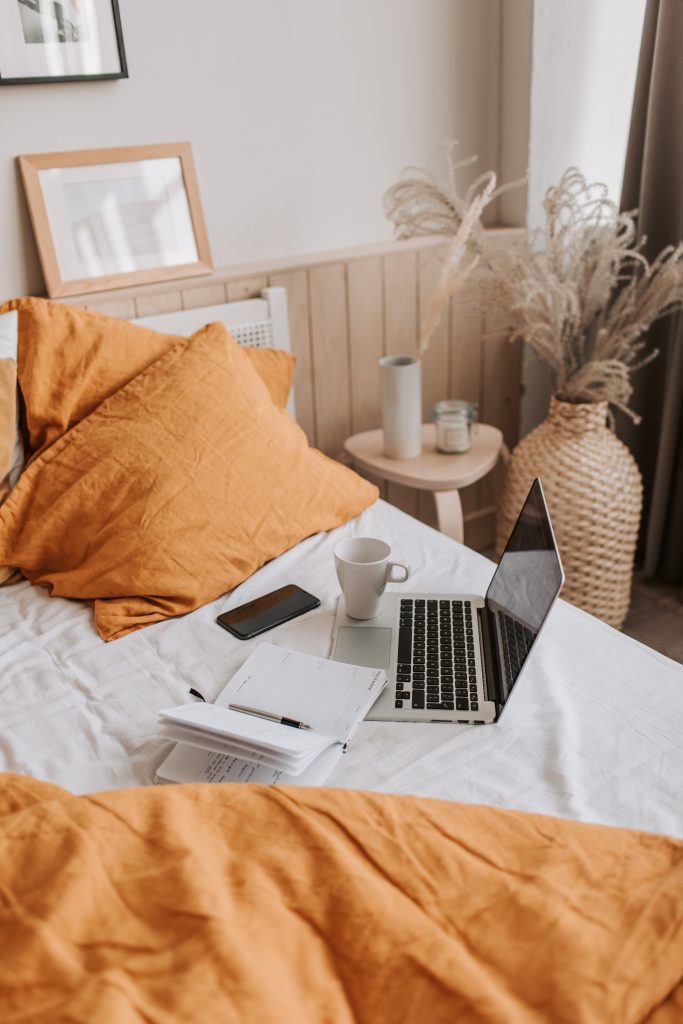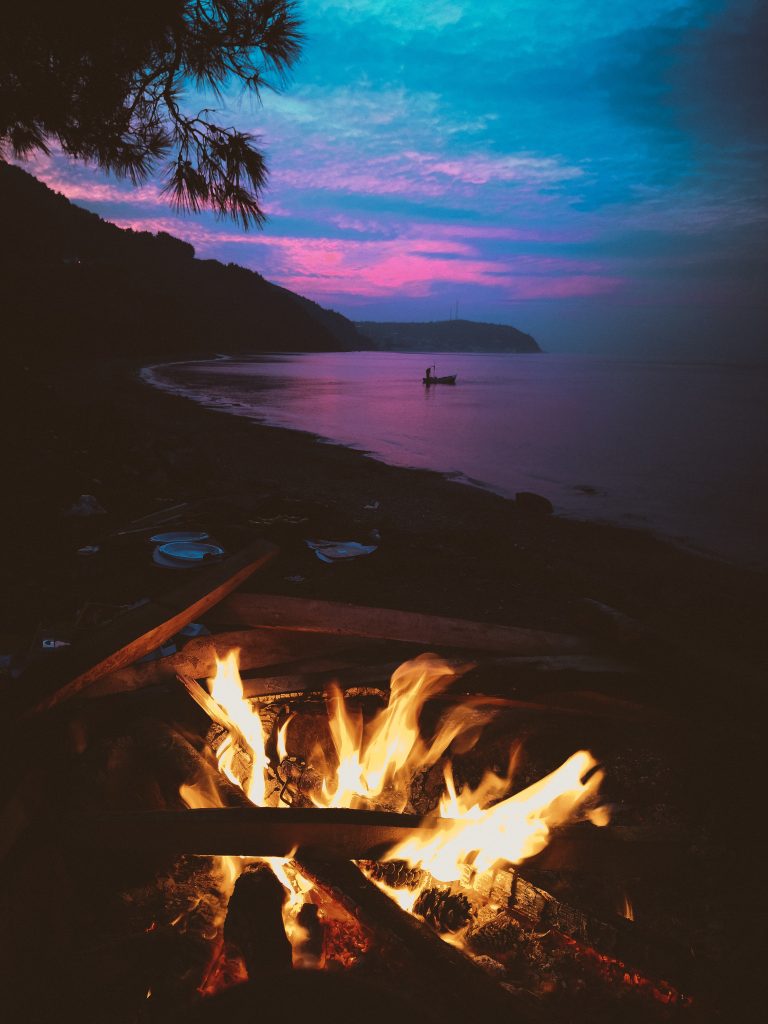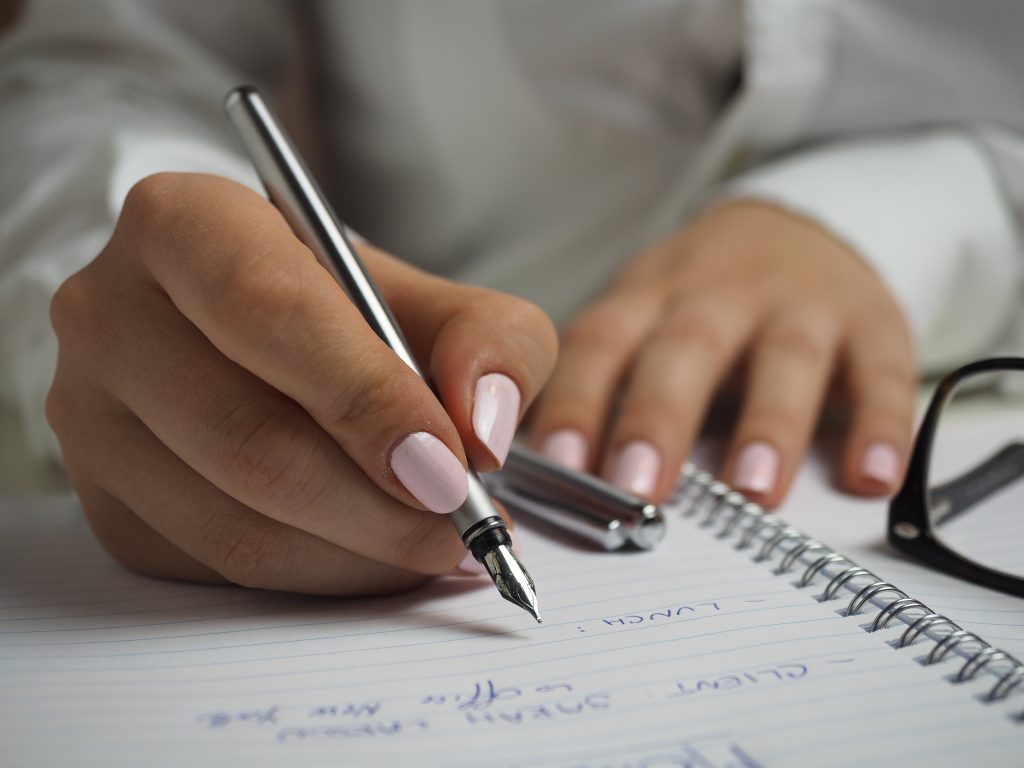
Sometimes, life is hard.
Your typical day can get so hectic that you barely have enough time to change out of pajamas in the morning before it is already bedtime again. You are so busy juggling responsibilities that you can’t find the time to finish that short story, complete the novel edits, or even take a few minutes to write a four-line poem.
So, maybe you need a solo writing retreat?
I will admit that I won the lottery a few months ago. I didn’t win a cash prize or a prestigious award; instead, I won a writing residency opportunity to spend almost two weeks on a private island in the middle of a quiet lake. It is the perfect place for me to focus on three things: Eating, sleeping, and writing.
The exciting thing is: I will be on an island in the middle of nowhere. Alone. No one will be asking me for anything. There will be no loads of laundry to wash and fold. No scammers will call every hour to talk to me about suspicious activity with my SIN card. I can concentrate on writing something new.
The scary thing is: I will be on an island in the middle of nowhere. ALONE! Although I will also be inches away from spiders, snakes, and tiny rodents with big teeth, so I am not entirely alone. There might also be a chance of random serial killers lurking in a canoe just offshore. My imagination will be locked in overdrive, which may or may not be good for my writing.
So, to drop all my adult responsibilities and head to a place with no Wi-Fi, no running water, and no people, I needed to get organized and make a thousand lists of things I might need to take with me. Good thing I love making freaking lists.
Here are a few lists (and my comments) to get you started if you want to plan a productive solo writing retreat:
List of Grocery Items:
When someone goes on a solo writing retreat, you would think that the most important items would be the writing materials and tools. Not me. I believe eating is my number one priority.
My appetite requires an extensive list of grocery items that will last without spoiling before eating them. Unfortunately, because I am on a remote island, I can’t just run to the store and get another carton of oat milk, a dozen eggs, or a fresh loaf of bread. Nor can I whip over to the pharmacy to pick up my forgotten medication. I have to bring whatever I need with me—one trip in and one out twelve days later.
I should reveal that the island has some solar panels that generate enough energy to allow at least one light to shine. Plus, a stove, a refrigerator, and a barbeque run on propane. This situation is a step up from backcountry camping. At least I get to sleep on a bed INSIDE the cabin, instead of being snuggled into a sleeping bag outside on the ground, with rocks stabbing me in the back all night and a tiny piece of nylon tent protecting me from the curious wildlife. See, it already sounds better, right?
The grocery list has to cover three meals a day, plus snacks at various intervals throughout the day, including late-night writing sessions. This is where the Ration Queen comes into play. My kids still like to tease me about the rations I would enforce while we were camping when they were kids. I would limit the number of apples and granola bars that we could eat at any given time. I did this so that our family of five would still have something to eat during the last days of camping. It was an excellent survival lesson that they still have nightmares about thirty years later.
Therefore, you will need to be a Ration Queen too. Make a list of what you might want to eat for each daily meal, and stick to a plan. Suppose you eat all the yogurt, bananas, and potato chips by the end of the second day; that would leave you starving for the other ten days. Therefore, the grocery list is essential. Rationing is even more critical.
I added things to the list that don’t require much preparation. I want to be writing as often as I can, so making lasagna from scratch is not happening. You will want to choose easy things like coffee, tea, fresh or frozen fruit, pre-cut vegetables, nuts, trail mix, peanut butter, bread, granola bars, chips, and chocolate. Another option is purchasing freeze-dried meals in a bag. All you do is add boiling water, and a few minutes later, you have steaming Beef Stroganoff or Chicken Fried Rice. These are excellent meals full of protein, although the downside is that they tend to be slightly expensive.
List of Non-Grocery Items:

This list could include everything you need that isn’t edible. You might require a sleeping bag, sheets, blankets, and pillows. You might be obsessed with your favourite coffee mug, coffee Bodum French Press, or water bottle that needs to come with you; otherwise, your writing will suck.
Also, on this list, you might want to include random things such as maps, flashlights for trips to the outhouse in the middle of the night, a hammock for afternoon siestas, a first aid kit, and a lifejacket. You might want to bring a camera, a mat for sunrise yoga on the dock, and beach towels to dry off after your midnight swims. Oh, and June is bug season, which means you will need to cover all your exposed skin with layers of thick clothing or lather up with bug spray. Otherwise, the mosquitos and black flies will have a feast at your expense.
List of Clothing:
The list of clothing could consist of one t-shirt, a pair of shorts, and a bathing suit. That’s it. You could wear it for two weeks, and no one would know, would they? However, you will start to stink after a little while, and some of the wild animals might want to cuddle up with a stinky person in a soft bed. Therefore, I highly recommend changing your clothes at least once every 24 hours.
There is no absolute rule here, but I suggest you bring enough comfy clothes to last you an extra few days if the boat doesn’t pick you up at the pre-arranged time. Take at least one pair of pants, a sweatshirt, a few t-shirts, and seven pairs of shoes. The bra and underwear are optional. Don’t forget the water shoes, sunglasses, and a huge straw hat. You should look like a famous author hiding on a secluded island if someone paddles by and snaps a photo of the artist in the wild. You need to look the part.
Other clothing items you might want to include: A waterproof jacket for walks in the rain, a warm knitted sweater, and a pair of your favourite fuzzy socks.

List of Writing Tools and Reference Material:
This list reminds you of why you are on a solo writing retreat. You want to write thousands of new words. Make sure you pack notebooks, pens, highlighters, markers, sketchbooks, and a laptop with a charging cord. Throw in some sticky notes, coloured cue cards, pushpins, and any How-To-Write-Like-A-Pro books for reference. If you have a few favourite novels that you are studying for structure, bring them too. Maybe, even throw in a few books opposite to what you are writing, so you can enjoy a few hours of reading before bedtime.
List of Things You Want To Accomplish:
This list could include a loose schedule of what you would like to accomplish while at your writing retreat. An action plan could consist of wake-up times, meal prep, eating times, writing times, canoe trips, dips in the lake or reading breaks. It could include specific items you would like to accomplish, such as writing two rough drafts of future blog posts, writing out the novel’s outline with 32 scenes, or creating 20 poems by the time you leave the island.
Having a plan will help you feel productive. Sure, you could sleep and eat your way through the two weeks without writing a single word, but honestly, you would hate yourself at the end. I think if you “try” to determine a loose schedule of times that will allow you to sit your butt in the chair and write something—no matter how horrible or amazing you think it is—you will be happy and proud of your accomplishments at the end of each day.
If you want to be super-organized, you could measure your progress on a chart with how much time you spend writing and compare it to how much time you sleep, eat, or wander through the woods taking in the breath-taking views of nature. Those moments are perfect for reflecting, remembering, and planning a future that includes “you” moments. They are crucial for your mental health, and they help fill novel plot holes too.
List of Outstanding Tasks:
Lastly, during your stay, you should keep an ongoing list of all the things you didn’t quite get a chance to accomplish while on the solo retreat, but you want to attack soon. Maybe, you need to create a backstory for one of the characters to explain his reason for why he skipped the graduation party, why he is angry with his brother, or why his mother abandoned him when he was seven? Maybe, you need to fix the timeline of the murder? You can peck away at all these questions after you return home. It will give you something to look forward to, plus allow you to deepen your characters in the novel when you have more time.
Conclusion:
Being prepared and creating detailed lists can make your solo writing retreat productive. Overall, a retreat is a true gift of time to help you reconnect with your creative muse. It should give you a new perspective on all you can accomplish when not being interrupted seventy-five times a day.
It is vital to keep an open mind during the retreat time, keep your expectations realistic, and be kind to yourself. Please do whatever you feel like doing and don’t worry about the rest of it. If you need to sleep, then sleep. If you want to cry, then cry. It is not reality TV, where a camera is on you 24/7. You are alone. Smile and appreciate every little second of surviving another day and doing something you are passionate about, which makes you happy.
Guaranteed, within two hours of returning home, you will be making new lists for the following writing retreat. This is not a one-time thing. It will become more of an annual trip. Why not? You deserve it.
Have fun Lori and you’ll have to do a follow up blog on what you learned on your solo writing retreat!
Thanks, Seana! The planned follow-up blog will be going live on June 27th (provided I survive the experience). I predict the writing productivity will go well, and I will need to buy a private island in the near future just to get anything done. Ha!
I think you should wear 1 t-shirt and shorts alllll retreat. He he he. Have a blast and be super productive!
Thanks, Donna! I’m smiling. You know me too well. Ha! I probably only need one favourite T-shirt, a pair of shorts, and a bathing suit for the whole two weeks! I’ll concentrate more on eating and writing instead. Ha!